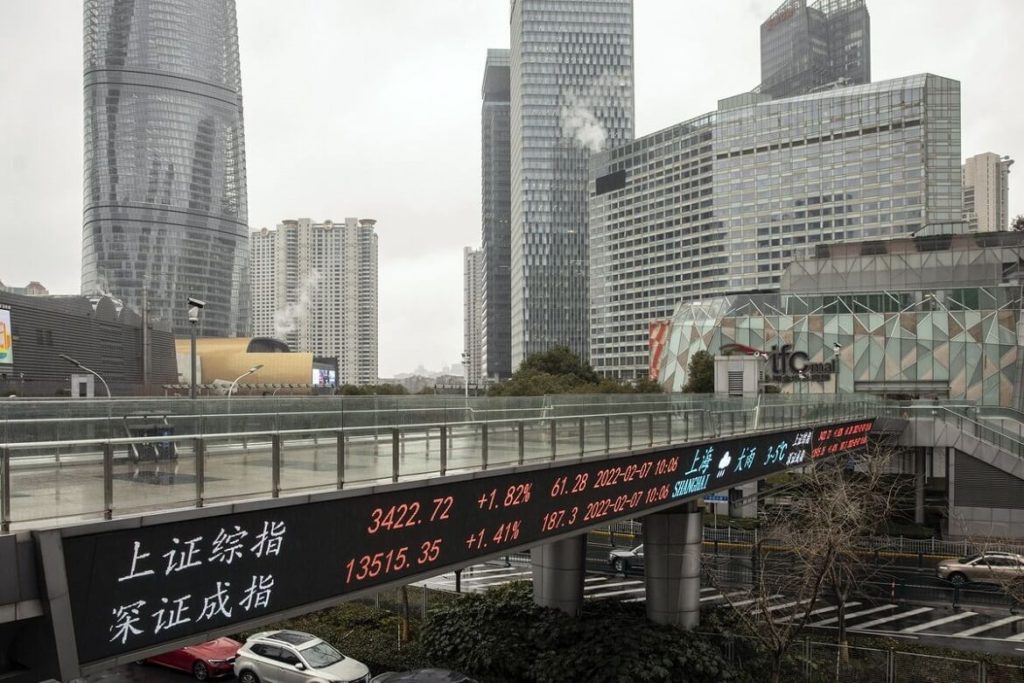World Geostrategic Insights interview with Andrew Collier on China’s economic and financial markets troubles, particularly with reference to China’s shadow banking crisis.

Andrew Collier is a leading authority on China’s macroeconomics, politics, industry and financial markets. Based in Hong Kong, Andrew is China country analyst at GlobalSource Partners, New York, and the founder and managing director of Orient Capital Research, which conducts independent research on China. He frequently covers China on Bloomberg TV, CNN, New York Times, Wall Street Journal, South China Morning Post and Financial Times. Andrew previously served as president of Bank of China International USA. He is the author of the book “China’s Technology War: Why Beijing Took Down its Tech Giants” 2022. He has also published two previous books on Shadow Banking (2017) and China’s Global Acquisitions (2018).
Q1 – Chinese households are spending less, industrial production is declining, businesses are investing more slowly than last year, youth unemployment has risen, and the housing market is in crisis due to falling house prices. What is happening to the world’s second largest economy? Is China really in serious economic and financial trouble?
A1 – For the past two decades, China has relied on infrastructure and property to drive economic growth. The stimulus package in 2009 in response to the global financial crisis intensified this economic pattern. This was aided by the rapid growth of urban to rural migration. But even with urbanization, the high debt loads, excess investment, and inadequate tax policies made this structurally unsustainable; the end of the property and infrastructure boom was inevitable. Now, China needs to find a new source of growth. Unfortunately, the emphasis remains on infrastructure, along with inefficient state firms. The private sector has difficulty accessing capital while the “platform economy”— a healthy provider of jobs — was reduced in size. China is going to struggle with growth for at least a decade.
Q2 – Chinese shadow banking refers to underground financial activity that takes place outside traditional banking regulations and systems. China has one of the largest shadow banking sectors, with about 40 percent of the country’s outstanding loans linked to shadow banking activities. Concerns about China’s $3 trillion shadow banking sector’s excessive exposure to real estate developers and the broader economy have grown over the past year as the sector has gone from one crisis to another. What is happening to China’s shadow banking system? What policy response is expected from China’s regulatory bodies?
A2 – China’s regulators, primarily the PBOC under the guidance of former vice premier Liu He, reduced the size and growth of the shadow banking industry starting in 2016. They shrank the more volatile parts of shadow banking, such as wealth management products, that could have led to runs on the banks and widespread, uncontrolled defaults. What they were unable or unwilling to do, however, was to shrink the size of other parts of the shadow banking sector, mainly the Trusts and the Local Government Financing Vehicles. These are as much investment vehicles as they are financial intermediaries but currently have over 80 trillion yuan of debt. The current campaign is attempting to reduce the size of the property market — where much shadow banking capital went — but it is going to be a slow and messy deleveraging process. There is real concern that pushing these institutions like the Trusts out of business may lead to a collapse of the economy.
Q3 – Shadow banks exist in other countries as well. Is there a risk that what is happening in China could propagate and create troubles for the global economy?
A3 – The financial ties between China and the global financial system are fairly limited, particularly when it comes to shadow banking. The vast majority of shadow banking products were sold domestically. There is some connection globally with the banks that have loaned to countries under the Belt and Road Program, which will lead to Chinese bank losses, but the impact on the Chinese banks will be limited. Some countries, however, are going to have to engage in debt restructuring talks with China. The bigger issue is that the slower growth due to the collapsing property market will reduce China’s appetite for imports, including key ingredients like iron ore, that will affect global exports.
Q4 – You are the managing director of “Orient Capital Research,” which conducts due diligence on Chinese companies, organizes surveys on consumer and macroeconomic conditions, analyzes macroeconomic trends of the shadow banking system in China, and financial statements. Given China’s current financial and economic momentum, do you think it is still worthwhile for foreign companies to make significant investments there?
A4 – There are small, but important investment opportunities in key growth sectors in China, in EVs, green technology, and some smaller platform companies. These are relatively small from a macroeconomic point of view but are investable by foreign capital. The days are gone, though, of large-scale capital flowing into the Chinese economy for big companies and projects.
Andrew Collier – Founder and Managing Director of Orient Capital Research and author of “China’s Technology War: Why Beijing Took Down its Tech Giants”
Images Credit: Qilai Shen/Bloomberg







